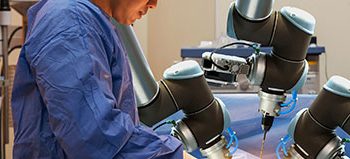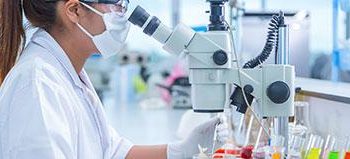
Introduction
In the fast-paced world of scientific research and discovery, time and precision are of the essence. Laboratories across the globe are constantly seeking ways to optimize their workflows, reduce manual errors, and enhance overall efficiency. This quest for progress has led to the rapid growth of the Lab Automation Market, offering innovative solutions that redefine the way science is conducted. From pharmaceuticals to biotechnology, from academics to industrial applications, Lab Automation has become an indispensable tool, empowering researchers and scientists alike.
The global lab automation market is projected to reach USD 7.1 billion by 2028 from USD 5.1 billion in 2022, growing at a CAGR of 5.8% during the forecast period. Rising technological advancements primarily drive the growth of this market in lab automation, rise in demand for miniaturize process equipment further supports the market growth. However, higher initial investment impedes the market growth. However, the slow adoption of lab automation by some laboratories and the long waiting period for workflow implementation are expected to restrain the market growth.
Prominent Players of Lab Automation Market:
The lab automation business is very competitive, with both established companies and newcomers competing for the same market share. As of 2022, the key players operating in the global lab automation market are Thermo Fisher Scientific (US), Tecan Group (Switzerland), Danaher Corporation (US), Agilent Technologies (US), F. Hoffmann-La Roche (Switzerland), PerkinElmer (US), Eppendorf (Germany), Becton, Dickinson and Company (US), Waters Corporation (US), Siemens Healthineers (Germany), Abbott Laboratories (US), bioMérieux (France), Endress+Hauser Group (Switzerland), Hamilton Company (US), and Hudson Robotics (US) among others.
Download a PDF Brochure: https://www.marketsandmarkets.com/pdfdownloadNew.asp?id=1158
Thermo Fisher Scientific (US)
Thermo Fisher Scientific develops, manufactures, sells, and distributes analytical instruments, reagents & consumables, laboratory equipment, and software & services. The company offers a complete and integrated portfolio of solutions and services for clinical science and laboratory research & analysis. The company provides products through brands such as Thermo Scientific, Applied Biosystems, Invitrogen, Fisher Scientific, and Unity Lab Services. It operates through four segments—Life Sciences Solutions, Analytical Instruments, Specialty Diagnostics, and Laboratory Products & Biopharma Services. The Analytical Instruments and Laboratory Products & Biopharma Services segments offer lab automation solutions.
Tecan Group (Switzerland)
Tecan Group develops, manufactures, and distributes laboratory automation solutions. The company produces robotic sample processors, standalone separation and detection devices, laser scanners, integrated systems, and pumps and valves for high-precision liquid handling. The company operates through two business segments—Life Sciences Business and Partnering Business.
The Rise of Lab Automation
A Revolution in Efficiency
Lab Automation has emerged as a game-changer, streamlining repetitive tasks and allowing scientists to focus on high-level analysis and decision-making. By automating processes like sample handling, data analysis, and experiment execution, researchers can significantly reduce the time and effort required for routine tasks, leading to increased productivity and faster results.
Enhancing Data Accuracy
Inaccurate data can lead to misguided conclusions and lost time. Lab Automation eliminates the risk of human error in sample preparation, measurement, and analysis, ensuring the reliability and reproducibility of scientific experiments. With precise data at their fingertips, scientists can make informed decisions, leading to groundbreaking discoveries.
Request a Sample Copy of Report: https://www.marketsandmarkets.com/requestsampleNew.asp?id=1158
Lab Automation Market Dynamics:
Drivers:
- Technological advancements and increasing R&D investments
- Growing demand for process automation for food safety
- Standardization of workflows
- Stringent regulatory control in healthcare industry
Restraints:
- Slow adoption of automation by small and medium-sized laboratories
- Long gestation period for workflow implementation
Opportunities:
- Improving healthcare infrastructure across emerging countries
- Growth in pharmaceutical and biotechnology industries
Challenges:
- Limited feasibility with technology integration in analytical labs
- Availability of refurbished lab automation equipment
Applications of Lab Automation
Drug Discovery and Development
The pharmaceutical industry is at the forefront of adopting Lab Automation. High-throughput screening and automated synthesis enable researchers to test thousands of compounds efficiently, accelerating drug discovery and development timelines. This not only reduces costs but also increases the chances of identifying potential life-saving drugs.
Genomics and Personalized Medicine
Lab Automation plays a pivotal role in genomics research, enabling the analysis of vast amounts of genetic data rapidly. This advancement has paved the way for personalized medicine, tailoring treatments to individual patients’ genetic profiles, leading to more effective and targeted therapies.
Clinical Diagnostics
Automation has transformed clinical laboratories by streamlining sample processing and analysis. From blood tests to genetic testing, Lab Automation expedites diagnostic workflows, enabling faster and more accurate disease detection and patient care.
The Future Challenges
Cost of Implementation
While Lab Automation offers immense benefits, the initial setup cost can be a significant barrier for smaller laboratories and research institutions. However, as the technology advances and becomes more accessible, these challenges are gradually being overcome.
Data Security and Privacy
With the increasing reliance on automated systems, data security and privacy become paramount concerns. Robust measures must be in place to protect sensitive research data from unauthorized access or breaches.
FAQs on Lab Automation Market
What is Lab Automation?
Lab Automation refers to the use of technology and robotic systems to perform laboratory tasks and experiments with minimal human intervention.
How does Lab Automation benefit scientific research?
Lab Automation improves efficiency, data accuracy, and reproducibility, leading to faster results and enhanced productivity in scientific research.
What are the common applications of Lab Automation?
Lab Automation finds applications in drug discovery, genomics research, clinical diagnostics, and various other scientific domains.
Conclusion
The Lab Automation Market continues to grow and redefine the landscape of scientific research. With its potential to accelerate discoveries, improve data accuracy, and optimize workflows, Lab Automation holds the key to unlocking new possibilities across various scientific disciplines. As challenges are addressed, and technology becomes more accessible, we can expect Lab Automation to play an even more prominent role in shaping the future of science and innovation.


